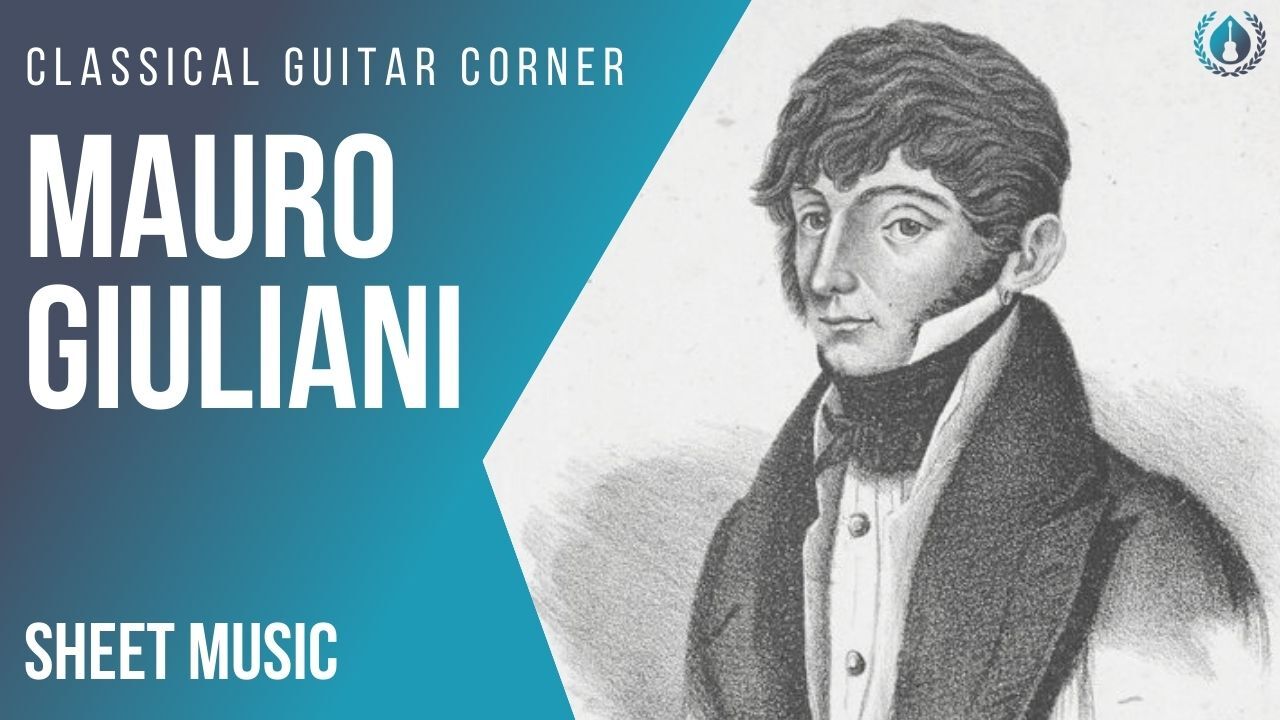Mauro Giuliani
Biography
Mauro Giuliani (1781 – 1829) was an Italian composer, guitarist, singer, and cellist. Giuliani was born in Bisceglie, and spent the first two decades of his life just northwest up the coast in Barletta—including marrying and having one son, Michael. However, he spent the formative part of his career as a composer, teacher, and performer in Vienna. While in Vienna he met and began a relationship with Anna Wiesenberger, with whom he had four daughters. Among his daughters was the celebrated guitarist and composer Emilia Guglielmi-Giuliani.
Giuliani was among the most innovative of guitarists in the nineteenth century and he applied compositional techniques from the biggest composers of his day in Vienna, including Beethoven and Rossini. It is said that he played cello in the premiere of Beethoven’s Seventh Symphony in 1813. And among Giuliani’s most important works are a set of Theme and Variations on themes from the operas of Rossini, the “Rossiniana” (Opp. 119-124).
The composer wrote some of the most substantial works for the guitar of his generation, including two very important sonatas, Sonata Brillant, Op.15, and Gran Sonata Eroica, Op.150, and the Grand Overture, Op.61.
However, he was also a great pedagogue. And although Giuliani did not write a method for guitar like many of his guitar contemporaries, he did write many substantial pedagogical works. In addition to more than 100 exercises and progressive lessons and studies for students at various levels, Giuliani’s very first published work is a thorough, four-part set of studies of the right hand, intervals, and progressive lessons. Studio, Op.1 holds its place as one of the most important pedagogical works of his time, alongside the methods of Sor and Aguado.

Sheet Music
Studio per la Chitarra, Op. 1:
Studio, Op.1 Complete (PDF download)
Giuliani, 120 Right-Hand Studies, from Studio Op.1 (lesson and PDF download)
Sonatas:
Sonata brillant, Op.15 (PDF download)
Gran Sonata Eroica, Op.150 (PDF download)
Grande Ouverture, Op.61:
Grande Ouverture, Op. 61 (PDF download)
Rossiniana:
Rossiniana No.1, Op.119 (PDF download)
Rossiniana No.1, Op.119 (podcast episode)
Rossiniana No.2, Op.120 (PDF download)
Rossiniana No.3, Op.121 (PDF download)
Rossiniana No.4, Op.122 (PDF download)
Rossiniana No.5, Op.123 (PDF download)
Rossiniana No.6, Op.124 (PDF download)
24 Esercizio, Op.48:
24 Esercizio, Op.48 (PDF download)
Le Papillon, Op.50:
Le Papillon, Op.50 (PDF download)
“Allegretto,” Le Papillon No.5, Op.50 (video)
“Allegro,” Le Papillon No.13, Op.50 (lesson and video)
“Tempo di Polacca,” Le Papillon No.19, Op.50 (video)
18 Études Progressives, Op.51:
18 Études Progressives, Op.51 (PDF download)
Etudes Instructives, Op.100:
Etudes Instructives, Op.100 (PDF download)
24 Prime Lezioni Progressive, Op.139:
24 Prime Lezioni Progressive, Op.139 (PDF download)
